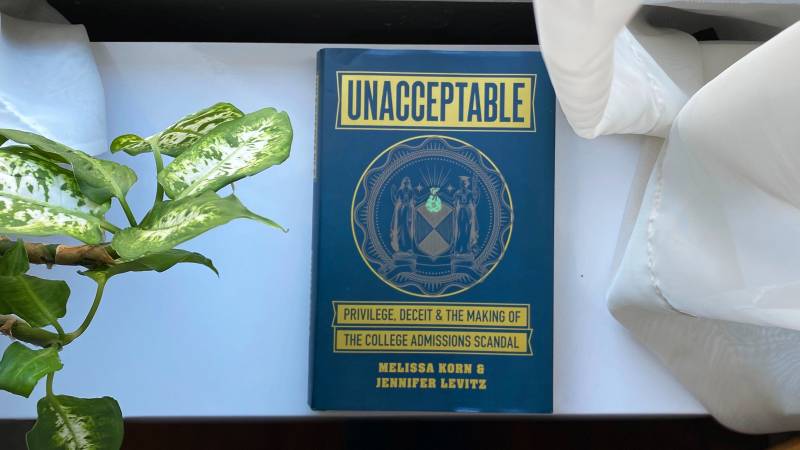Melissa Korn: I found the complexity of the scheme to be the most interesting part. This wasn’t just one corrupt guy helping a crooked parent. Each prong of the operation, both testing and bribery/fake athletes, involved multiple players working together, or sometimes being kept separate from one another as best suited the end game. It could have fallen apart in so many ways, at so many different stages.
The [initial criminal] complaint is 204 pages and could be published as a book alone. It’s so detailed that it leaves you with so many interesting questions. It moves beyond a juicy news story because there is something close to home for many people. If you’re a parent or anybody who has a loved one, you want to do what’s best for them. You want to help your loved one succeed. Some people just went a little too far.
As you were reporting, the case was still underway, and you were reporting and writing in real time. What were some of the challenges you faced because of that?
Jennifer Levitz: The biggest challenge was getting people to speak with us. This case was still a criminal case, so a lot of people were reluctant to speak. It can be tough to break into circles where you have people surrounded by teams of lawyers and PR consultants. We had to get very creative in telling these stories and I think the writing was hard, but the reporting was where the real sweat came in.
I also found that the door knocking aspect of it was different. I’ve generally been a reporter driving ’round, knocking on doors and talking to neighbors. Well, it’s really hard to do that when people live in communities where nobody is walking down the street, and everyone’s behind a gate with alarm systems. You just cannot physically run into anybody.
I’m a big believer in getting to people directly. It’s an art to work with people whose job is to protect this person while keeping you at bay. I wasn’t confident that our messages were even getting to people. So, I wanted to get to people directly and at least give them a chance.
One of the big “gets” in the book is your interview with one of the students involved in the scandal, Matteo Sloane. His father, Devin Sloane, was sentenced to four months in prison for paying to have Matteo admitted to the University of Southern California. How did that interview come to be?
Levitz: I reached Matteo Sloane through Facebook Messenger, saying, “Hey, we would love to talk with you.” A couple months go by. Then he wrote back wanting to tell his side of the story. We went ahead and spoke with him, and he was just so honest.
Then I remember going the next day to confirm a couple of things with the people representing that family. They were like, “You did what? You talked to him?” Had we gone through them, that wouldn’t have happened.
[In the book] we went beyond the headlines, and our own Wall Street Journal coverage, to connect the dots between all the players and to tell the stories of the individuals involved. It’s not sympathy for them, but we do make them actual people—flawed, complex people—rather than just names in a tabloid or court document.
As you mentioned earlier, this case brings up issues about meritocracy, equity and access. How has Unacceptable shaped your current work or view on higher ed?
Korn: So I have been covering general U.S. higher ed for almost six years now. I love the beat, and I have always approached it somewhat cynically. This project made me question what I’m hearing from schools more than I already did. As schools are talking about their devotion to diversity, equity and access, I am saying, “OK, let me see that,” because schools put out these great press releases or talk about their percent of Pell Grant students. But then they were involved with this, or their coaches did this, or they gave preference to these types of students.

9(MDAxOTAwOTE4MDEyMTkxMDAzNjczZDljZA004))

